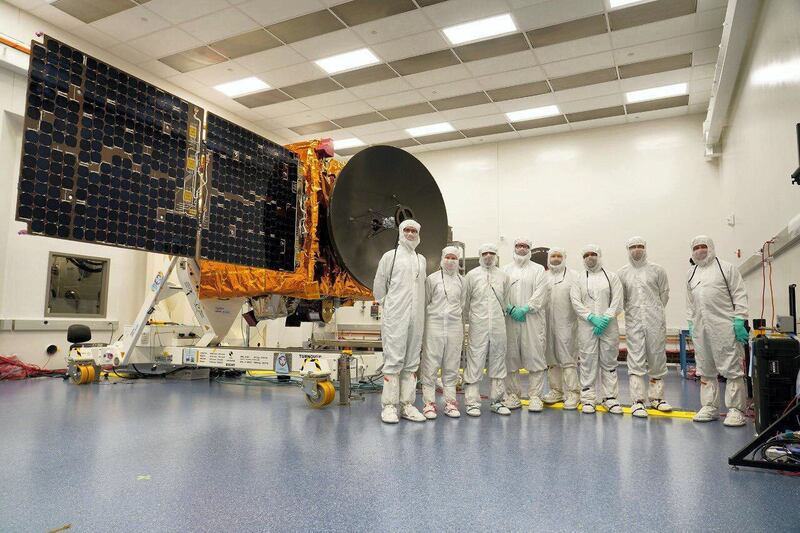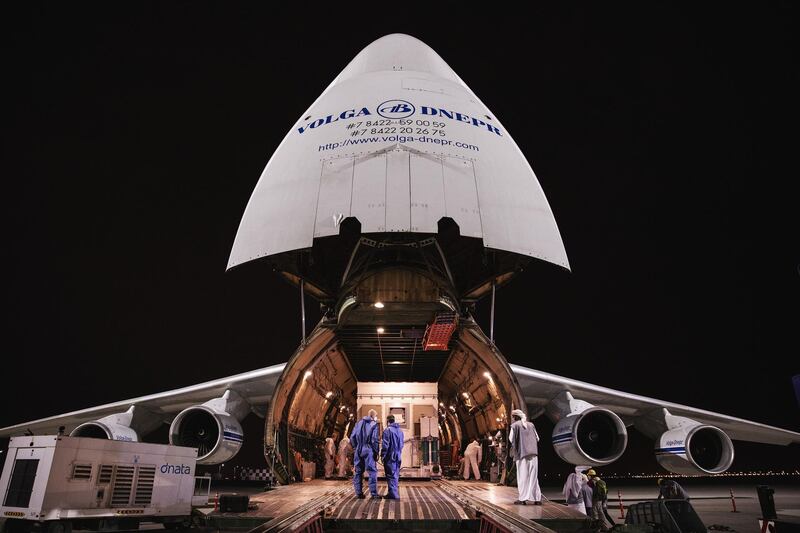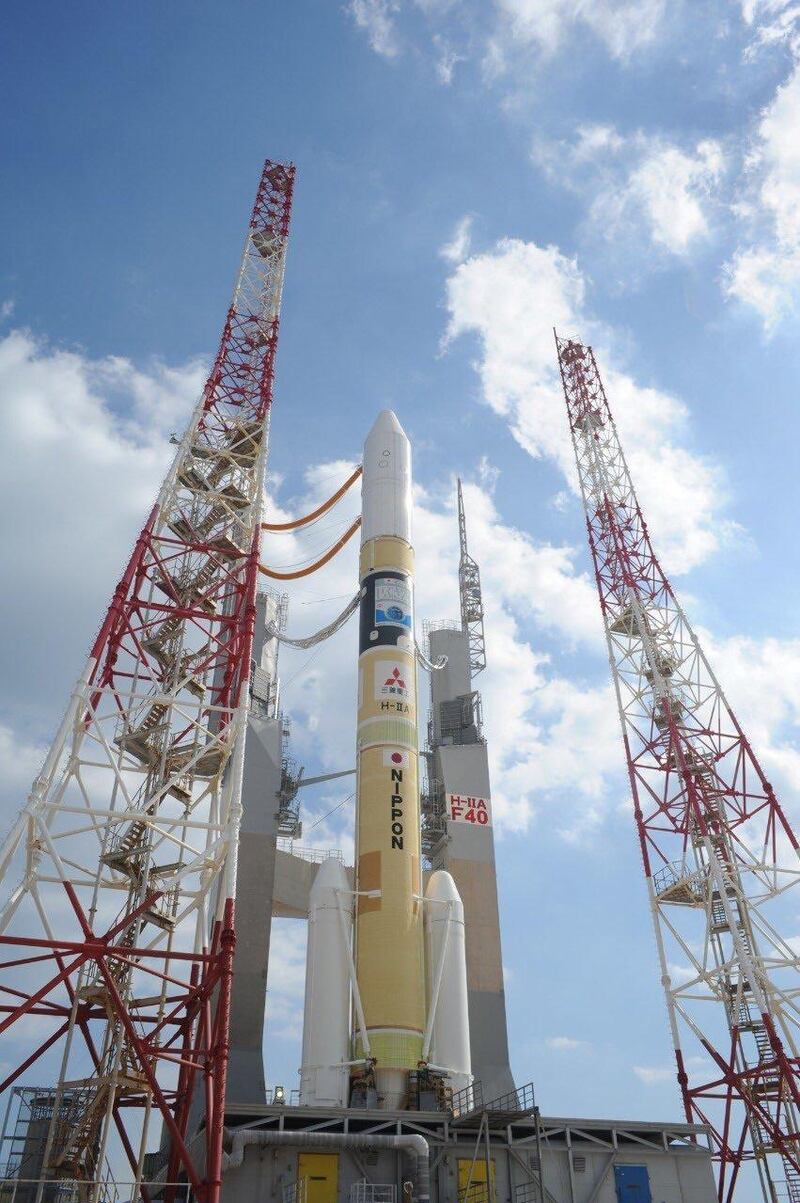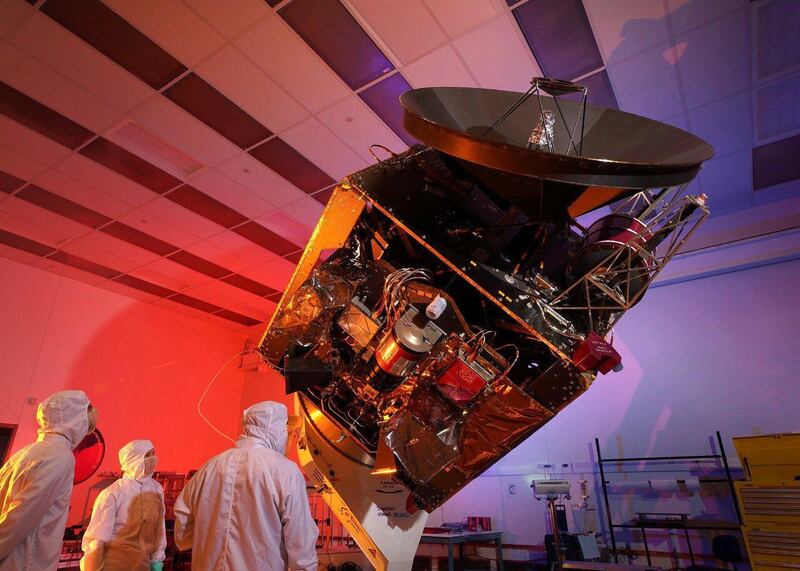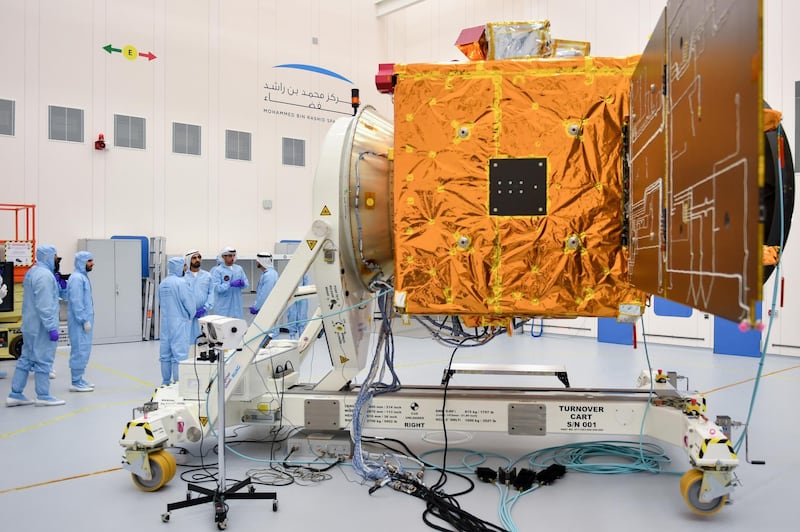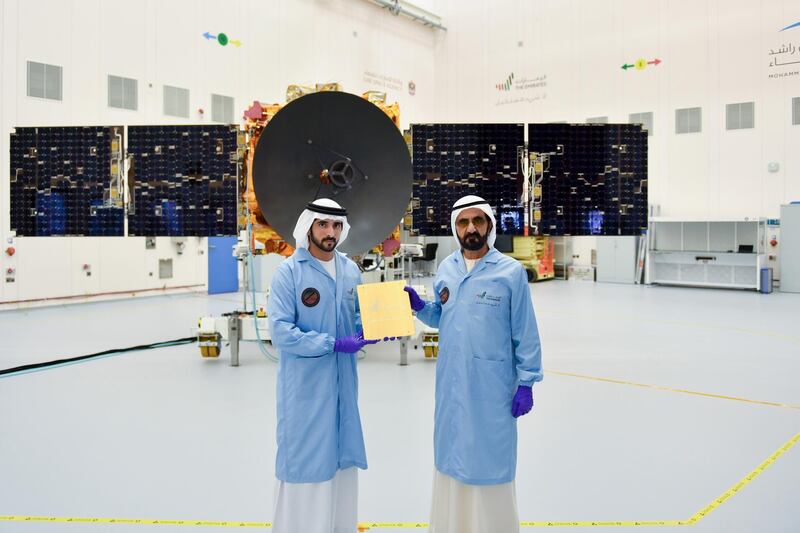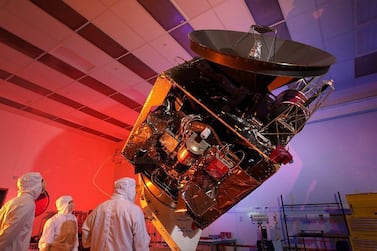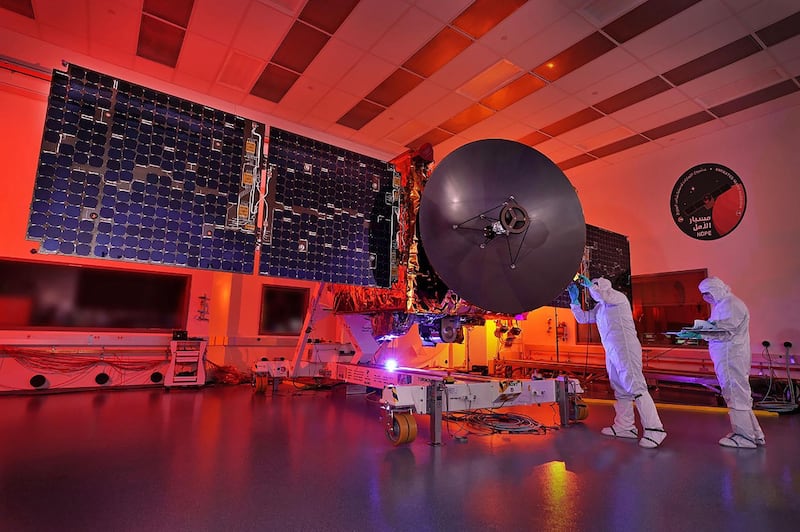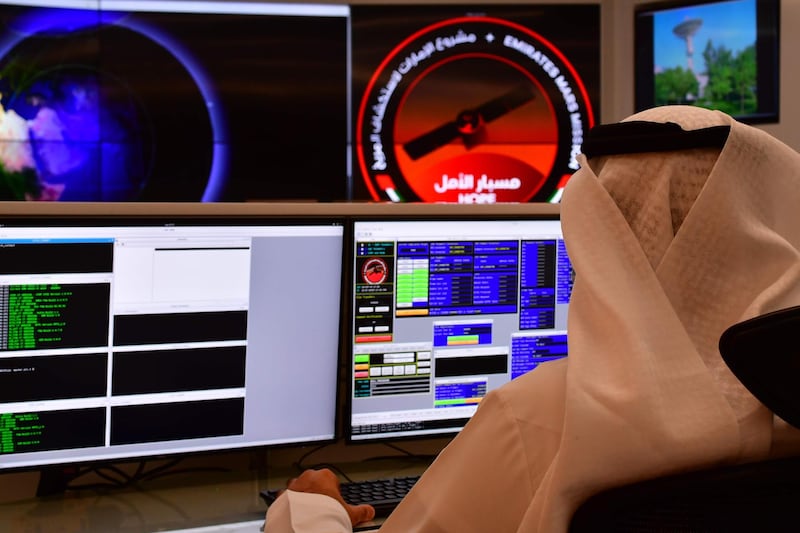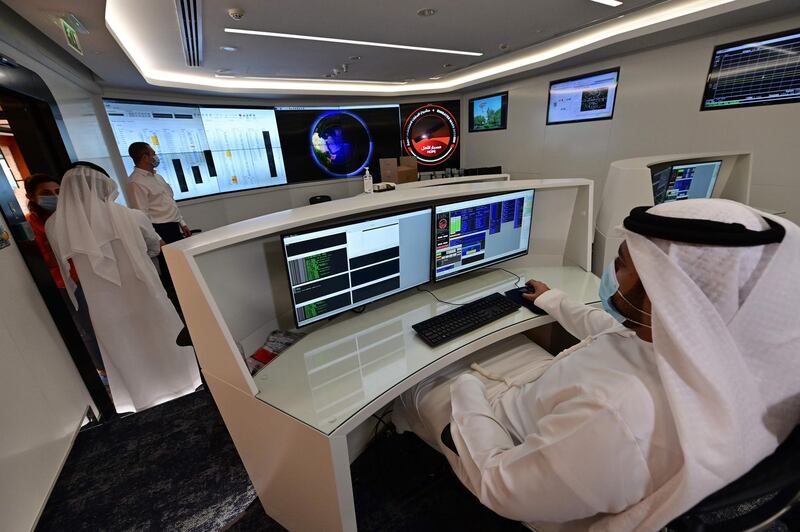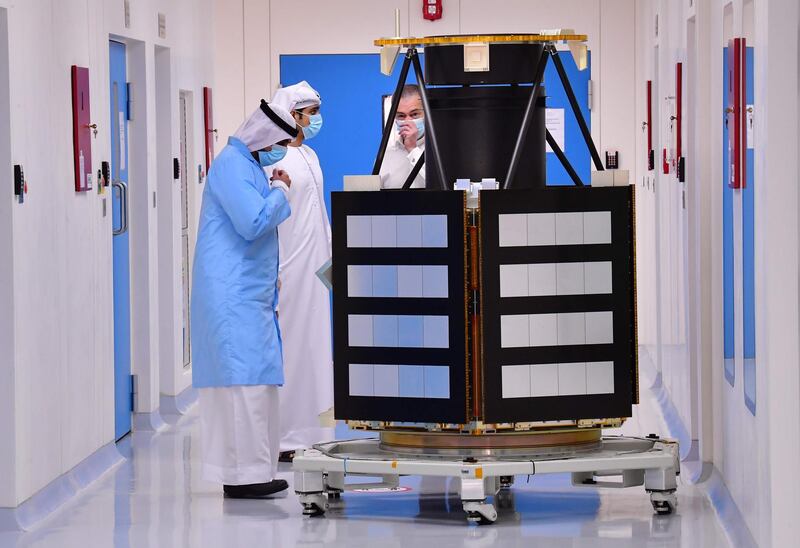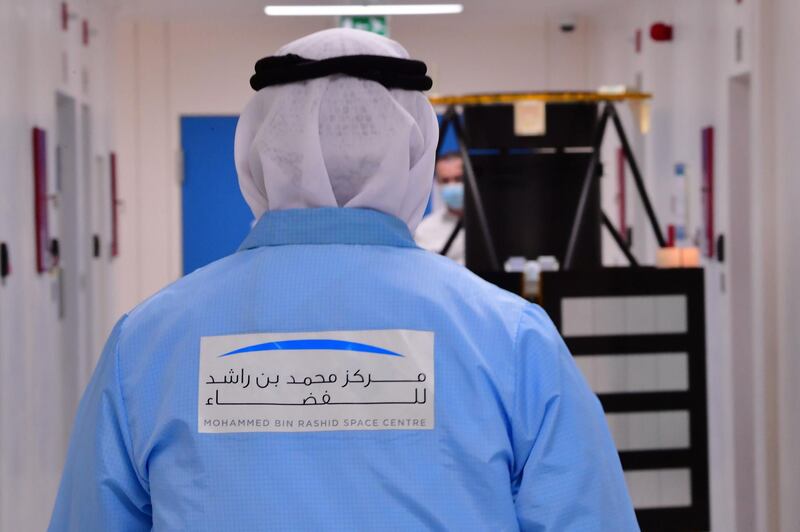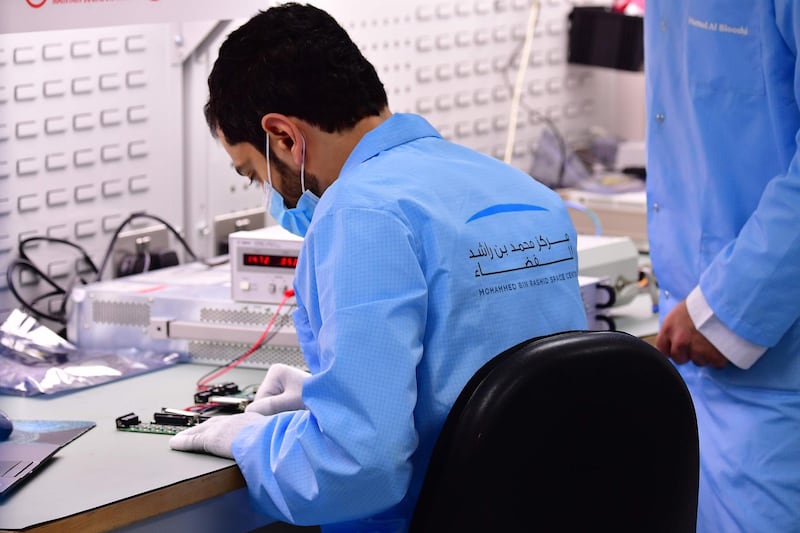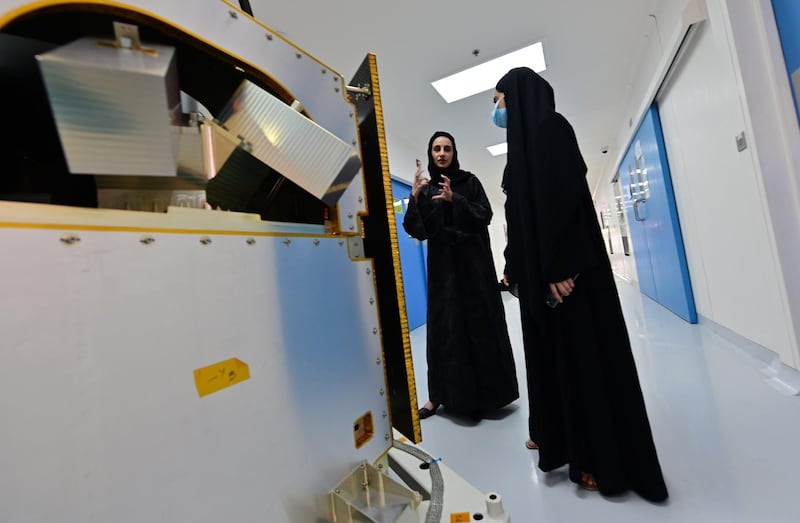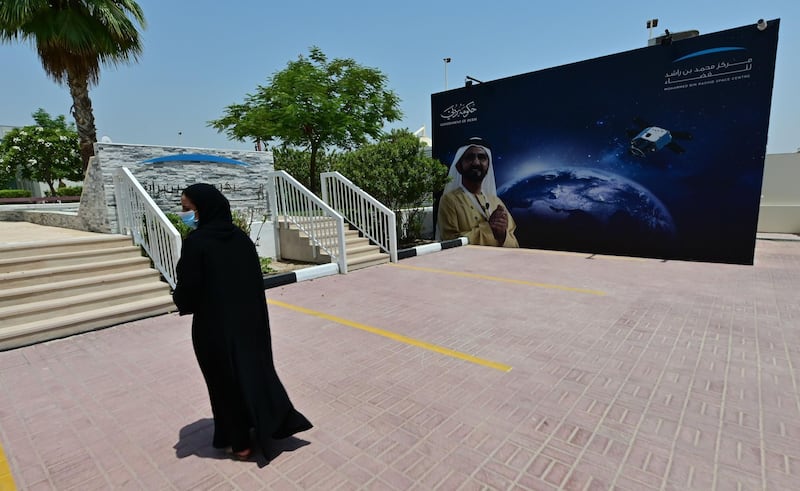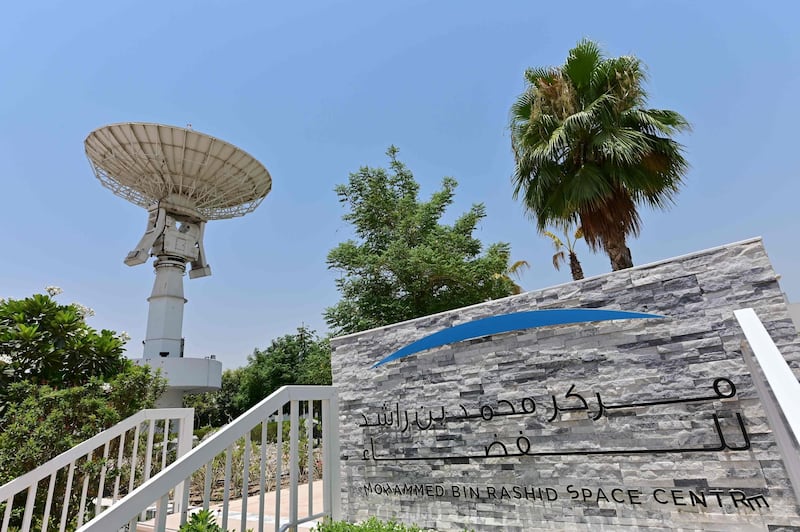The UAE is a step closer to becoming the first Arab nation to reach the Red Planet.
Engineers said the Hope probe was undergoing final checks at its launch site on Tanegashima Island, Japan, but that all systems were "go".
Sarah Al Amiri, president of the UAE Space Agency and deputy project manager of the Emirates Mars Mission, said July 15 continued to be the expected launch date.
“The spacecraft is ready for launch and all of the systems are now at a level that is ready to be launched,” she told a media briefing.
“We also checked the ground segment and the operations in mission control and they are ready to accept the spacecraft after launch.
“The final checks are currently ongoing on both the launch vehicle and mission control. We are ready to launch as scheduled early in the morning on July 15.”
The Hope probe is designed to study the upper and lower atmosphere of Mars and will take seven to nine months to reach the Red Planet.
It was built by a team of 150 Emirati engineers, scientists and researchers, working alongside three US universities.
The probe will be propelled into space by a Japanese-built rocket system called the H-IIA, capable of speeds of more than 34,000kph. The spacecraft will separate from the rocket about an hour after lift-off.
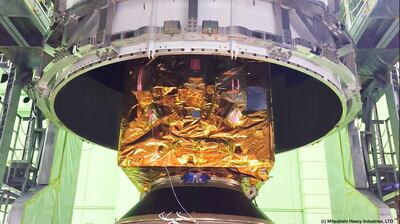
Once out of Earth’s gravity, Hope will make its journey towards Mars, travelling 493.5 million kilometres. As it reaches Mars's orbit, it will slow from around 121,000kph to 18,000kph.
From there its infrared spectrometer will begin to measure the distribution of dust, ice clouds and water vapour while a sophisticated on board camera takes high-resolution images of the planet.
An ultraviolet spectrometer will also study the upper atmosphere and record traces of oxygen and hydrogen.
Other spacecraft launched to explore Mars in recent years include Nasa's Mars Reconnaissance Orbiter in 2005 and the Trace Gas Orbiter, a joint project by Russia's space agency and the European Space Agency that was launched in 2016.
The UAE’s Hope probe will be placed in a much higher orbit than previous craft, however, allowing it to capture broader images. Scientists calculate it will be able to make a full circle of Mars every 55 hours.
Despite the recent wet weather in Japan in recent weeks, the project's engineers remain confident the launch will take place on schedule.
